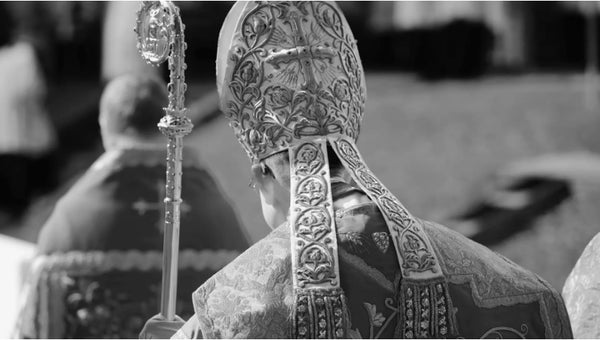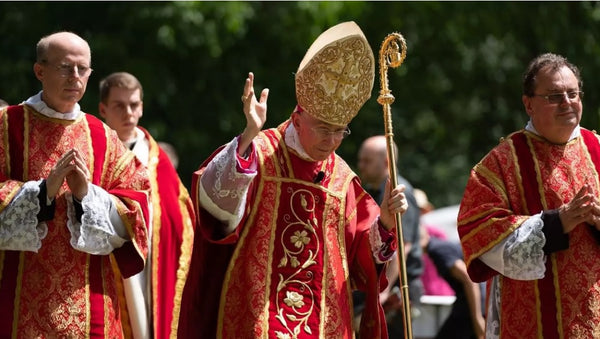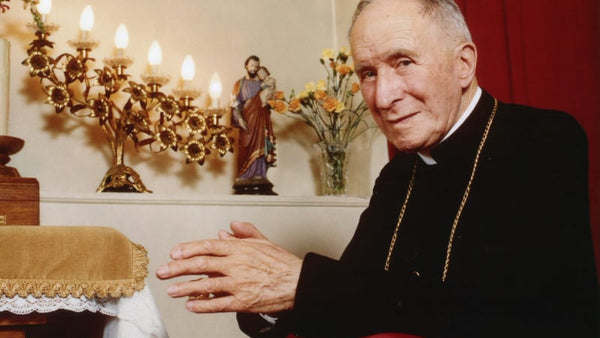Bishop of Springfield Illinois Takes Action Against Pro-Abortion Politicians

In a move as bold as it is long overdue, the Bishop of Springfield, Illinois, Thomas Paprocki, declared that Catholic legislators who support the state’s recent pro-abortion bills may not be admitted to Holy Communion.
The directive, which calls-out Illinois Senate President John Cullerton and Speaker of the House Michael J. Madigan, instructs the pair that they must first “they have truly repented these grave sins and furthermore have made suitable reparation for damages and scandal, or at least have seriously promised to do so, as determined in my judgment or in the judgment of their diocesan bishop in consultation with me or my successor.”
Resisting a Pro-Abortion Political Culture
The catalyst for Bishop Paprocki’s decree is Illinois’s Reproductive Health Act, which holds abortion to be a “fundamental right.” The legislation, which recently passed the state senate, relaxes regulatory restrictions on abortion clinics throughout Illinois. Among other things, the pending law would require private health insurance plans to cover abortions and lift waiting periods for receiving an abortion.
Bishop Paprocki’s decree also took note of any other pro-abortion Catholic politician in the state, and stated that the same restrictions apply to them as they do to Cullerton and Madigan. Mindful that some critics may contend that the Bishop’s decision is hypocritical in light of the ongoing sex-abuse crisis, Paprocki preempted them:
The same justifiable anger we feel toward the abuse of innocent children, however, should prompt an outcry of resistance against legalizing the murder of innocent children. The failings of the Church do not change the objective reality that the murder of a defenseless baby is an utterly evil act.
An Overdue Witness
For decades, Catholics have called upon priests and bishops to take action against ostensibly Catholic politicians who work to uphold abortion legalization while combating its restriction. Those calls almost uniformly fall on deaf ears, leading to a situation where it is now normative for an individual to “be Catholic” in their private life but wholly secular in their public life. This bifurcation can be blamed in part on the spread of liberalism in the Catholic Church following the Second Vatican Council, including religious liberalism which holds that religious beliefs are a private affair that should not have socio-political influence.
It is not yet clear how pro-abortion Catholic legislators will respond to the decree. A great deal will depend on Springfield’s diocesan clergy, some of whom may not share their bishop’s fidelity to traditional Catholic moral teaching and canon law.
Even so, Bishop Paprocki is to be applauded for his efforts to take a stand against pro-abortion politicians while protecting the integrity of the Eucharist, the most sacred and precious Sacrament of the Universal Church. May more bishops follow his lead.
SOURCE: FSSPX.NEWS
Image Caption: Bishop Paprocki (left), Illinois Senate President John Cullerton (top) and Speaker of the House Michael J. Madigan (bottom)
Also in News from Tradition

Death of Bishop Bernard Tissier de Mallerais

Prayer Intention for Bishop Tissier de Mallerais
We ask for prayers for His Excellency Bishop Tissier de Mallerais.
On the morning of Saturday 28 September, after the Angelus, he fell on the stairs of the seminary in Ecône and lost consciousness. He is currently in hospital.

Archbishop Marcel Lefebvre on the Feast of Christ the King
The following sermon for the Feast of Christ the King was delivered by Archbishop Marcel Lefebvre, founder of the Society of Saint Pius X (SSPX), on October 29, 1989 in Dublin, Ireland.
Today we must pray to Our Lord Jesus Christ, we must pray to the Blessed Virgin Mary to remain true Catholics and to do everything possible to become saints. We must come to church frequently, pray in our church, receive the graces of the sacraments in order to become saints, to sanctify our souls and to go to heaven with all the members of our families and all those who kept the Catholic Faith here on earth and now enjoy the happiness of heaven.

Angelus Press
Author